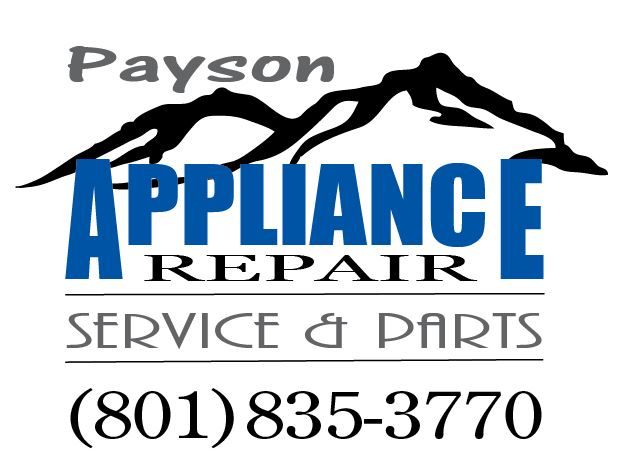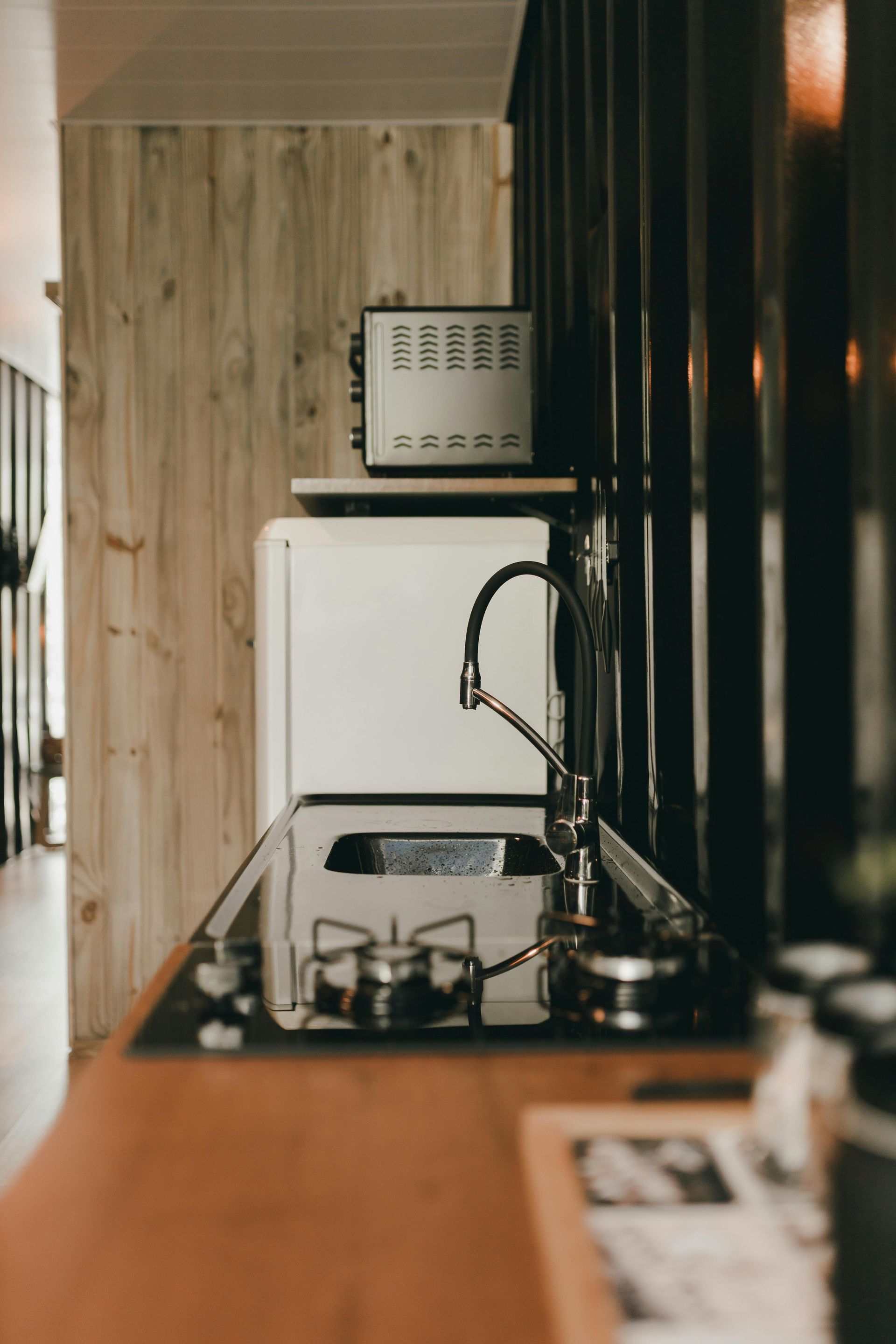Washing Machine Repair in Salem: Common Problems & Quick Fixes
When your washer suddenly stops working, it can throw your entire routine into chaos. Whether it’s a front-load, top-load, or commercial model, most laundry machine problems can be diagnosed and fixed with a bit of troubleshooting. If worse comes to worst, you may have to look for someone to repair your washer. If you’ve searched for “washing machine repairing near me” or “washer fixer,” you’re likely trying to understand what went wrong and how to fix it fast. This guide breaks down the most common issues homeowners face, how to troubleshoot them, and when it’s time to call a professional washing machine repair in Salem UT.
Key Takeaways
- Many washing machine problems can be fixed through simple troubleshooting before calling a technician.
- Common issues include the washer not starting, not draining, or producing unusual noises.
- Regular maintenance can help prevent costly repairs and extend your machine’s life.
- Understanding your washer’s model and basic parts helps with quicker problem diagnosis.
- If troubleshooting doesn’t help, contact a local expert offering washing machine repair near you.
Understanding How a Washing Machine Works
Before you can fix washing machine issues, it’s helpful to know the basics of how your unit functions. Most washers follow the same cycle pattern: fill, wash, drain, and spin. These stages rely on key components like the motor, pump, lid switch, water inlet valve, and drive belt. When any of these parts fail, the washer may not complete its cycle properly.
Knowing this helps you pinpoint whether a problem is electrical, mechanical, or related to water flow. Once you understand the general operation, you can begin troubleshooting washing machine problems safely.
Common Washing Machine Problems and How to Fix Them
The table below outlines common issues, their likely causes, and possible quick fixes.
| Problem | Likely Cause | Quick Fix |
|---|---|---|
| Washer won’t start | Faulty lid switch, blown fuse, or power issue | Check power connection, test outlet, replace fuse, inspect lid switch |
| Water not filling | Clogged hose, defective water inlet valve | Inspect hoses for kinks, clean filters, test valve |
| Washer not draining | Clogged pump, broken belt, or obstruction | Clear debris from pump, check belt, clean drain filter |
| Washer not spinning | Unbalanced load, faulty motor coupling | Redistribute clothes, test coupling and motor |
| Excessive vibration | Unbalanced drum or worn shock absorbers | Level the washer, tighten legs, inspect suspension rods |
| Strange noises | Loose objects or worn bearings | Remove foreign items, replace bearings if needed |
Troubleshooting Steps for a Broken Washer
When dealing with a washing machine not working, it’s best to go step-by-step rather than trying random fixes. Here’s a structured washing machine troubleshooting guide you can follow:
1. Check Power Supply and Settings
Sometimes, the problem isn’t mechanical at all. Make sure:
- The washer is properly plugged in.
- The outlet works (test it with another appliance).
- The power cord isn’t damaged.
- The cycle settings are correct for the load.
2. Inspect Hoses and Filters
Kinks or blockages in hoses can prevent water from entering or draining properly. Remove hoses, clean filters, and ensure water can flow freely. This simple task often resolves many laundry machine problems.
3. Look for Drainage Issues
If the washer doesn’t drain or leaves standing water, check the pump for clogs. You may find small items like coins or hairpins blocking it. Cleaning this area can restore normal drainage and prevent further damage.
4. Listen for Unusual Noises
Grinding, banging, or rattling sounds usually indicate a mechanical issue. It could be a loose drum, worn bearings, or a foreign object inside the tub. Addressing the cause early prevents damage to the motor or internal components.
5. Reset the Machine
Many modern washers have a reset function that can clear electronic errors. Unplug the washer for one minute, then plug it back in and restart a cycle. If the issue persists, it may be time to seek help from a professional wash machine repairman near you.
DIY Maintenance Tips to Prevent Laundry Machine Problems
Preventing breakdowns is easier and cheaper than fixing them. Regular maintenance keeps your machine running smoothly and reduces the need for frequent repairs.
- Clean the drum regularly: Run an empty cycle with hot water and a cup of white vinegar once a month to remove detergent buildup.
- Check hoses for wear: Replace cracked or bulging hoses to avoid leaks.
- Avoid overloading: Too much laundry strains the motor and bearings.
- Wipe seals and gaskets: This prevents mold growth and odors.
- Leave the door open: It helps air out the washer and prevents mildew.
By following these tips, you’ll minimize the risk of a broken washer and avoid searching for “washing machine repair Salem” too often.
When to Call a Professional Washer Fixer
Sometimes, DIY methods aren’t enough. If your washing machine still doesn’t respond after basic troubleshooting, professional help is the safest route.
Consider calling a technician when:
- The washer trips the circuit breaker repeatedly.
- You smell burning or electrical odors.
- Water leaks persist even after replacing hoses.
- The drum doesn’t move during any part of the cycle.
- You suspect a faulty motor or control board.
For businesses or shared laundry facilities, you might need commercial washing machine repair near me to handle larger units that require specialized tools and parts.
Hiring a certified technician Salem ensures your washer is repaired safely and efficiently without risking further damage.
Common Electrical and Mechanical Issues Explained
Understanding whether a problem is electrical or mechanical can help you decide how to fix washing machine troubles properly.
Electrical Problems
- Faulty lid switch: Prevents the washer from spinning or starting.
- Defective timer: Causes incomplete or skipped cycles.
- Broken control board: Leads to unresponsive buttons or digital errors.
Solution: Electrical repairs often require professional diagnosis. If you’re unsure how to test electrical continuity, avoid DIY fixes.
Mechanical Problems
- Worn drive belt: Causes the drum to stop spinning.
- Clogged pump: Prevents draining.
- Damaged agitator: Leads to uneven washing performance.
Solution: Many mechanical parts are replaceable with simple tools. Refer to your owner’s manual for part numbers and diagrams.
Washing Machine Troubleshooting Guide for Specific Issues
Here’s how to fix a washing machine based on the most common symptoms:
Washing Machine Not Working at All
- Confirm power and lid closure.
- Test outlet and fuse.
- Inspect start switch or control board.
- Replace defective parts if needed.
Washer Won’t Drain or Spin
- Check for debris in the pump filter.
- Ensure the drain hose isn’t kinked.
- Examine motor coupling or belt.
Excessive Noise or Vibration
- Redistribute laundry evenly.
- Tighten bolts and check suspension springs.
- Use a level to stabilize the washer.
Leaking Water
- Examine hose connections and clamps.
- Replace old rubber seals.
- Check door gaskets for tears.
Clothes Still Wet After Cycle
- Select proper spin speed.
- Clean lint filters.
- Verify that the pump and motor are functioning properly.
Following this washing machine troubleshooting guide helps identify minor problems before they turn into expensive repairs.
When to Replace Instead of Repair
Every appliance has a lifespan, and sometimes fixing it repeatedly is not cost-effective. If your washer is over 10 years old or repairs cost more than half the price of a new unit, replacement might be the smarter choice.
Signs you may need a replacement:
- Frequent breakdowns despite regular maintenance.
- Rising utility bills due to inefficiency.
- Outdated parts or discontinued models.
Newer models also use less water and energy, saving money in the long run.
Finding a Reliable Washer Fixer in Salem
When basic troubleshooting does not solve laundry machine problems, hiring a reliable technician is the most efficient next step. Start by searching for “washing machine repair in Salem” or “washing machine repair near me” and narrow candidates by reading recent customer reviews and checking ratings on local directories. Favor technicians who list Salem as their service area and who show experience with your washer brand and model.
Before you book, call and ask a few targeted questions to avoid surprises. Confirm whether the technician offers a written estimate, whether they charge a diagnostic fee, and whether parts and labor come with a warranty. For businesses or apartment complexes, ask specifically about “commercial washing machine repair near me” so you find someone who understands heavy-duty systems, commercial parts, and uptime expectations.
Use this quick checklist when comparing providers:
- Proof of experience with your washer brand and model.
- Clear pricing structure and whether a diagnostic fee applies.
- Warranty on parts and labor.
- Licensed, insured, and following local safety codes.
- Availability for emergency or weekend service if needed.
- References or recent local reviews from Salem customers.
When you schedule service, give the technician the model and serial numbers and describe the problem in detail. This helps them bring the correct parts and tools, which can shorten repair time and reduce visit costs. Ask how they handle replaced parts and whether they dispose of old components responsibly.
Finally, trust your instincts. A reputable washer fixer will be transparent, answer your questions clearly, and provide a written receipt or invoice. If you feel unsure about a quote or the technician’s approach, get a second opinion. Taking these steps will help you find a dependable wash machine repairman near you who can get your laundry back on track.
Frequently Asked Questions
What should I do if my washing machine won’t turn on?
Check the power outlet, lid switch, and fuse first. If everything seems fine but the machine remains unresponsive, call a professional for washing machine repair near me.
Why is my washer leaking water?
Leaks often come from worn hoses, loose clamps, or a damaged door seal. Inspect and replace these parts as needed to prevent water damage.
Can I fix a washing machine myself?
Minor issues like cleaning clogs or replacing hoses can be DIY projects. However, electrical or motor problems should be handled by a qualified washer fixer.
How much does it cost for commercial washing machine repair near me?
Costs vary depending on the machine type and issue, but expect a range between $150 and $500. Commercial units usually cost more due to their size and parts.
How often should I maintain my washing machine?
Clean your washer monthly and inspect hoses every six months. Regular upkeep prevents laundry machine problems and extends the appliance’s life.
Final Thoughts
A malfunctioning washer doesn’t always mean it’s time to buy a new one. Many issues, such as drainage problems or loud noises, can be solved with basic troubleshooting and timely maintenance. Understanding how to fix washing machine issues on your own saves both time and money.
When the situation goes beyond DIY, don’t hesitate to look for trusted professionals offering washing machine repair near you. Whether it’s a household unit or a commercial model, expert service ensures your laundry routine runs smoothly once again.
Get your washer running smoothly again—contact a trusted wash machine repairman near you in Salem today!
Reference:
https://dewdneyappliancerepair.ca/the-10-year-rule-when-your-appliances-hit-their-expiration-date-and-what-to-do-before-they-do/


